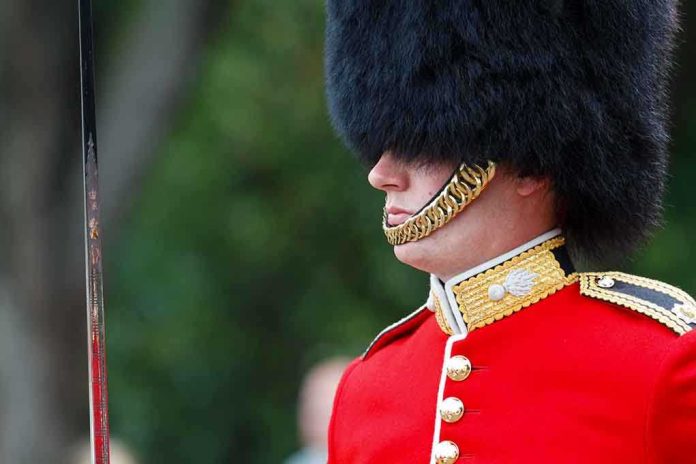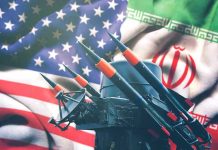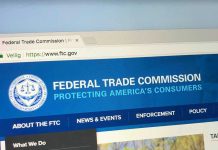
Amid a firestorm of scandal and public outrage, Prince Andrew clings to a 30-room royal mansion while taxpayers and the monarchy grapple with the absurdity of unchecked privilege and legal loopholes—a situation that would be unthinkable for any ordinary citizen.
Story Snapshot
- Prince Andrew, stripped of royal titles and public funding, refuses to leave Royal Lodge—a Crown Estate property he occupies under a virtually rent-free lease until 2078.
- King Charles III, seeking to protect the monarchy’s reputation, has cut Andrew’s income and security but remains legally blocked from evicting him due to the ironclad lease.
- The standoff has ignited a national debate over accountability, privilege, and whether the royals are above the law—even in disgrace.
- Andrew’s continued residence, despite his public fall from grace, underscores the disconnect between royal entitlement and the values of fairness and responsibility cherished by everyday Britons.
- Legal experts warn that forcing Andrew out could trigger costly litigation, while financial analysts question how he can afford the mansion’s upkeep without royal support.
The Royal Entitlement Crisis
Prince Andrew’s saga at Royal Lodge is a textbook case of aristocratic privilege colliding with modern demands for accountability. Since 2003, Andrew has held a lease on the Windsor Great Park mansion, paying a nominal “peppercorn rent” and investing millions in renovations, all while enjoying the trappings of royal life. The Crown Estate, not Andrew, owns the property, yet the lease’s terms—reportedly allowing occupancy until 2078—have tied the hands of both the monarchy and the public. Even as Andrew’s reputation crumbled amid the Jeffrey Epstein scandal and a multi-million-dollar civil settlement, the legal framework shielding his residence has remained intact, leaving King Charles and the British public powerless to act.
The situation escalated in late 2024 when King Charles cut Andrew’s £1 million annual allowance and security funding, a clear signal of royal displeasure. By October 2025, Andrew had relinquished his remaining titles and honors, yet he dug in at Royal Lodge, citing the lease’s protections. This defiance has not only strained relations within the royal family but also sparked outrage among citizens weary of elites evading consequences. The optics are disastrous for a monarchy already under pressure to modernize and demonstrate that no one, not even a prince, is above scrutiny.
Legal Loopholes and Public Backlash
The core of the dispute lies in the lease’s unusual terms, which require only a symbolic rent payment—reportedly one peppercorn per year—unless formally demanded by the Crown Estate. Andrew has not paid rent for two years, and while the lease is legally binding, its generosity in the face of scandal has become a lightning rod for criticism. Legal analysts note that any attempt to force Andrew out would likely result in protracted and expensive court battles, with no guarantee of success. Meanwhile, financial experts question how Andrew, now without a royal income or security detail, can maintain a property of this scale—raising suspicions of undisclosed wealth or outside support.
Public sentiment has turned sharply against Andrew, with many viewing his tenancy as a symbol of unearned privilege. The contrast with ordinary citizens—who face eviction for far lesser offenses—has fueled calls for reform of royal property arrangements. Media coverage has amplified these frustrations, with commentators across the spectrum demanding transparency and accountability. Even within the royal family, there is growing pressure for Andrew to step aside, but the law, not morality, currently dictates the outcome.
Broader Implications for the Monarchy
The Royal Lodge standoff is more than a personal drama—it is a stress test for the British monarchy’s future. King Charles, keen to slim down the royal roster and avoid further scandal, finds himself constrained by legal agreements signed decades ago. The episode has exposed the limits of royal authority and the risks of allowing opaque, long-term contracts to govern public assets. It also raises uncomfortable questions about the use of taxpayer-funded resources to support disgraced individuals, at a time when economic pressures are straining household budgets across the UK.
Historians and royal watchers warn that failure to resolve the situation could erode public trust in the monarchy, already fragile after years of controversy. The precedent set by Prince Harry and Meghan Markle’s eviction from Frogmore Cottage suggests that the Crown is willing to act when it suits institutional interests, but Andrew’s case demonstrates that legal technicalities can override even the monarch’s wishes. This has led to renewed calls for greater oversight of royal finances and property, with some MPs and activists demanding parliamentary review of Crown Estate arrangements.
For conservative audiences, especially those skeptical of unaccountable elites and government overreach, the Royal Lodge saga is a cautionary tale. It highlights the dangers of special privileges entrenched in law, the importance of contractual transparency, and the need for institutions—even ancient ones—to adapt to contemporary standards of justice and fairness. As long as Andrew remains at Royal Lodge, the monarchy’s claim to represent timeless values of duty and service will ring hollow to millions of Britons who expect better from their leaders.
Sources:
Prince Andrew Paying Peppercorn Rent to Live in Royal Lodge
Prince Andrew living rent-free at Royal Lodge mansion on the Windsor Castle estate for 20 years














